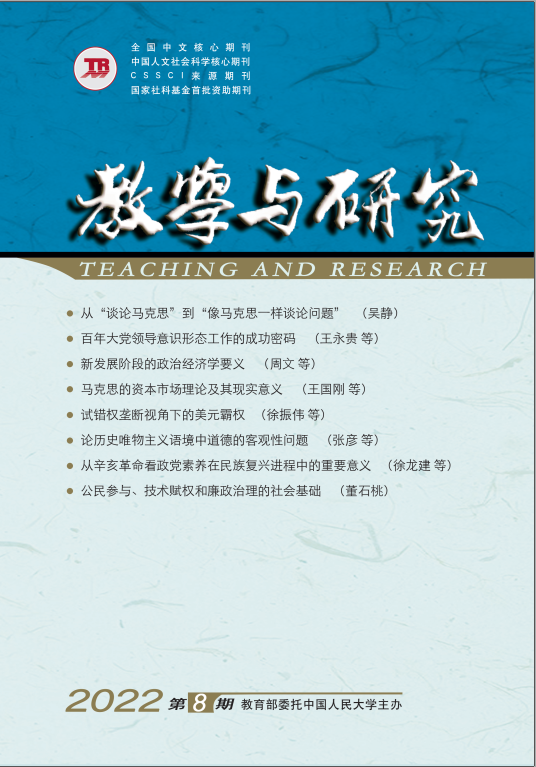Represented by “The Eighteenth Brumaire of Louis Bonaparte”, Marx's theory of revolutionary history contains a historical theoretical logic based on political situation analysis. In the specific analysis of the 18481851 revolution, Marx starts with the political situation in a short period of time, refines it into a synchronic class social structure, and continuously interprets the political situation, as a representation, into the social structure of productive forces and production relations, the economic base and the superstructure and the dynamic and mediating role of class in it. Furthermore, from the analysis of the social structure and its contradictory movements, Marx expounds the longterm historical laws and trends. Although the political situation can fundamentally be attributed to the social structure and its contradictory movements, it cannot directly “reduce” to the latter, but rather presents a “relative independence” as shortterm being relative to synchronicity and longterm. Therefore, the unity of the microscopic shortterm event situation, the mesoscopic synchronic social structure and contradictions, and the macroscopic historical trend is a progressive synthesis, which supplements and develops the basic principles of historical materialism in the dimension of political situations. It presents a theoretical opportunity for the continuous deepening and development of historical materialism.



